2020 NAEd/SPENCER POSTDOCTORAL FELLOWS
Travis J. Bristol, University of California, Berkeley
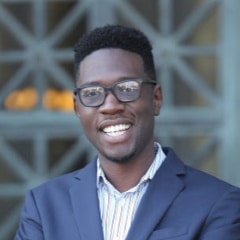
Travis J. Bristol is an assistant professor at the University of California, Berkeley’s Graduate School of Education. Dr. Bristol’s research is situated at the intersection of teacher policy and practice. Using qualitative methods, he explores three interrelated foci: (1) national, state, and local policies that enable and constrain teacher workplace experiences and retention; (2) district and school-based educator professional learning communities; (3) the intersection of race and gender in schools. His research has appeared in peer-reviewed journals as Urban Education, American Educational Research Journal, Journal of Teacher Education, Teachers College Record, and Harvard Educational Review. Dr. Bristol is currently co-editing (with Conra Gist) The Handbook of Research on Teachers of Color. In 2013, he received dissertation fellowships from the National Academy of Education/Spencer Foundation, the Ford Foundation, and the American Educational Research Association. In 2016, Dr. Bristol received the inaugural teacher diversity research award from the American Association of Colleges for Teacher Education. In 2019, he received a Ford Foundation Postdoctoral Fellowship. He is a former student and teacher in New York City public schools and teacher educator with the Boston Teacher Residency program. Dr. Bristol received his A.B. from Amherst College; an M.A. from Stanford University; and a Ph.D. from Teachers College, Columbia University.
Preparing Veteran Teachers to Differentiate Learning for Novice Male Teachers of Color
School districts have made large investments in professional development initiatives for teachers of color. However, the rate at which practitioners and policymakers design and implement professional development efforts to address the social context in which teachers of color work have outpaced the empirical warrants for the design features of these initiatives. Drawing on the Framework for Teacher Learning, the proposed study fills this empirical gap by examining the context and influence of a teacher ethnoracial diversity initiative in the nation’s largest school district. Employing a case-study approach, this study uses semi-structured interviews from 115 participants—veteran teachers (n=47) and novice male teachers of color (n=68)—to explore (a) how one school district trains veteran teachers to mentor and/or coach novice male teachers of color; (b) how veteran teachers make sense of the training they received from one urban school district in preparing them to mentor and/or coach novice male teachers of color; (c) how novice male teachers of color describe the role of trained veteran teachers in supporting their professional learning. This study aims to contribute to the growing body of research that investigates school district practices that impact the professional learning of novice male teachers of color.
Si Chen, Harvard University
Si Chen is a Postdoctoral Fellow of Education at the Harvard Graduate School of Education. Her work is primarily concerned with the ways in which language and literacy environments of young children—in and out of school, monolingual and bilingual—can be designed to support children’s development. Dr. Chen’s research primarily focuses on detecting the effectiveness of randomized literacy interventions in China, especially in rural early childhood education settings. Using experimental, quasi-experimental, and observational methodologies, Si Chen has studied: the causal impacts of bilingual curricular resources on the vocabulary development of language minority children in China, the effects of large-scale family-oriented shared book reading interventions on parental education beliefs and children’s vocabulary development, and how free-of-charge early childhood facilities in villages improve economically disadvantaged children’s academic achievement in elementary schools. Dr. Chen received her Ph.D. in Early Childhood Education from East China Normal University.
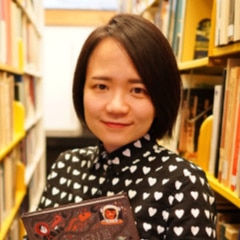
Intelligence Built into Curriculum: Can Curriculum Improve Early Childhood Program Quality in Settings with Underprepared Teachers?
At the core of quality improvement for early childhood education (ECE) programs is supporting teachers’ professional development. However, schools in low-resource communities have a perennial shortage of skilled teachers due to a lack of entry-level professional development programs. This reality requires scholars who are interested in promoting ECE quality in high poverty regions to shift from a knowledge enhancement model to a learning-from-practice model. This study recruits a large-scale sample of village-level kindergartens in rural China and employs a randomized-controlled-trial experiment to evaluate the effectiveness of a novel and affordable professional development solution tailored for new teachers from high poverty regions. The intervention package integrates picture books, a well-structured curriculum, and a progressive daily online teacher training. The three components were designed to be complementary to, and integrated with, each other: the picture books are suitable for the children while also affording opportunities for teachers to practice teaching skills; class plans include activities that expand on themes from the picture books; teacher training is tightly connected to the class plans and gradually promotes the development of teachers’ knowledge and skills. Producing an estimation of the treatment effects and the causal mediation effects will further our understanding of the feasibility of this model of professional development for ECE teachers in low-resource communities. This study’s results will inform a policy that guarantees universal and adequate early childhood education for all ECE students in China.
Jordan A. Conwell, University of Wisconsin-Madison
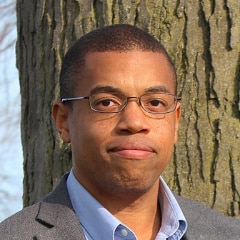
Jordan A. Conwell is an Assistant Professor in the Departments of Sociology and Educational Policy Studies at the University of Wisconsin-Madison. His research focuses on trends and consequences of racial, social class, and gender inequality in education, with a particular interest in the multigenerational roles of families and finances in these educational processes, as inputs for children and as outputs for adults. Recent papers have appeared or are forthcoming in journals including Journal of Marriage and Family and Sociology of Education. His work has previously been funded by a National Academy of Education/ Spencer Foundation Dissertation Fellowship. He completed a Ph.D. in Sociology at Northwestern University in 2017.
All in the Family: New Perspectives on the Returns to College Quality
This study will bring a multigenerational, family perspective to research on the returns to college quality and potential racial and gender differences in those returns. Previous studies on this topic have primarily relied on an individual and single-generation measure of returns. Most have assessed returns to college quality for individual income. This approach does not reflect the facts that college-goers 1) often partner with spouses who have similar educational credentials, thereby pooling economic resources along with their educational ones, and 2) then seek to pass on both types of advantages to their children. This project will build on this literature along those two lines, using data from the National Longitudinal Survey of Youth – 1979 Cohort (NLSY-79), the children born to women in this cohort (C-NLSY), and measures of college quality. First, I will assess whether the returns to college quality, and any racial and gender differences therein, vary across the outcomes of individual income, household income, and household wealth. Second, I will assess whether children receive returns to their mothers’ college quality for their own educational opportunities and outcomes, including their own college quality, and whether there are differences in these returns by children’s race and gender.
Amalia Dache, University of Pennsylvania
An Afro-Cuban American scholar, Dr. Amalia Dache is an assistant professor in the Higher Education Division of the Graduate School of Education at the University of Pennsylvania.
Her major research areas are postcolonial geographic contexts of higher education, Afro-Latina/o/x studies, community and student resistance, and the urban college-access experiences of African diasporic students and communities. Using geographic theories and methodologies, she engages in research within contested urban geographies, including Havana, Cuba; Cape Town, South Africa; Ferguson, Missouri; and Rochester, New York. In particular, Dr. Dache’s research explores geographic and structural factors that have historically inhibited access for students on the margins of race and class. At the same time, she strives to highlight urban spaces as sites of public knowledge, teaching, and learning, and to identify external factors such as residential segregation, transportation, and urban divestment that may contribute to increasing the enrollment of working-class populations at higher education institutions that are within or near their residential neighborhoods. Dr. Dache is published in leading social science journals such as: Teachers College Record; The Review of Higher Education, International Journal of Qualitive Studies in Education, Equity and Excellence in Education, and The Journal of Diversity in Higher Education. She is lead-editor of Rise Up! Activism as Education, published by Michigan State University Press (2019). Dr. Dache was recently awarded the Rockefeller Institute of Government’s Richard P. Nathan Public Policy Fellowship for 2019-2020, to research geographic data on racial, transit, and economic factors inhibiting access to local postsecondary education in Upstate New York. Dr. Dache received her Ph.D. from University of Rochester in Educational Leadership in 2014, her master’s in Liberal Studies and bachelor’s in English Literature from State University of New York (SUNY) institutions, Empire State College and Brockport College, respectively. She began her higher education journey proudly at SUNY Monroe Community College and earned an Associates in Liberal Studies..

Mapping Public Housing and Urban Higher Education Accessibility and Enrollment
in Philadelphia
Researchers and policymakers know very little about how residents of public housing in urban areas access higher education. By studying the higher educational journeys of public housing residents in Philadelphia, my study will provide an urban model pointedly absent from studies of college access, housing policy, and geography of opportunity. This project will examine the educational trajectories of community members who live in Philadelphia public housing and how well local postsecondary institutions serve these people. The research design is an explanatory mixed-method, two-phase sequential model that will analyze quantitative and qualitative data through a Geographic Information System (GIS). By providing educational data on Philadelphia’s public housing residents living in Racially/Ethnically Concentrated Areas of Poverty (R/ECAP) a federal HUD geographic designation, my research design will be foundational for studies of college accessibility in U.S. cities. Inquiry into government policy and its contribution to economic and social mobility within the field of higher education will provide policy levers for reform since there have been no studies to date that combine city-specific and resident-specific quantitative and qualitative education data. The significance of this contribution lies in its potential to demonstrate that public housing residents are student populations worthy of exploring and learning from. A second contribution is understanding the relationship between housing policy designed to reduce racial discrimination and how it may be contributing to college accessibility for poor residents of color.
Cati V. de los Rios, University of California, Berkeley
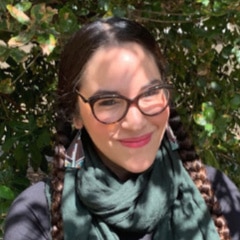
Cati V. de los Ríos is an Assistant Professor of Literacy, Reading and Bi/Multilingual Education at UC Berkeley’s Graduate School of Education. Cati was previously an Assistant Professor of Language, Literacy and Culture at UC Davis’s School of Education. Her research on adolescent translingual literacies, bilingual youths’ digital media practices, ethnic studies, and teacher education has been supported by the National Academy of Education/Spencer Foundation, Ford Foundation, and National Council of Teachers of English (NCTE). She is the recipient of numerous awards including NCTE’s Promising Researcher Award, Janet Emig Award, and Alan C. Purvis Award. Her recent publications can be found in Harvard Educational Review, Reading Research Quarterly, Journal of Literacy Research, Research in the Teaching of English, and Anthropology & Education Quarterly.
Designing a “Lived Civics” Approach to Secondary Ethnic Studies Classrooms:
A Comparative Case Study
There has been a sharp rise in youth of color’s political participation under the elections and presidencies of Donald Trump and Barack Obama (Cohen, Kahne, & Marshall, 2018; Street, Jones-Correa, & Zepeda-Millán, 2017). Concomitantly, youth of color and immigrant-origin youth are increasingly taking up digital communication tools to participate bi/multilingually in U.S. civic life (Zimmerman, 2016). As more non-dominant youth participate in contentious politics both off and online, current approaches to teaching civics in both urban and suburban schools are inadequately or ineffectively engaging their lived civic practices (Cohen et al., 2018). Traditional civic education routinely fails to address youth of color’s and immigrant youth’s racial and linguistic identities and lived experiences with state and democratic processes—fundamental elements that shape their relationships to social and politics issues and government institutions (Mirra & Garcia, 2017). Lived Civics (Cohen et al., 2018) attends to youth of color’s resistance practices like intergenerational grassroots organizing, online digital testimonios, participating in contentious politics, engaging in critical close readings of city ordinances and state and federal legislations, and working to transform one’s communities from the margins. Using a lived civics frame, the purpose of this research project is to analyze the alternative forms of civic education opportunities occurring in two California school districts’ Ethnic Studies programs with significant emergent bilingual/“English Learner” populations (one large urban school district in Northern California, the other a large suburban working-class district in Southern California). Drawing from a combination of ethnographic and participatory design research methodologies, I aim to better understand and document how and/or if these curricular spaces of intense reading and writing are supplementing the often non-existent or very low-quality civic education that immigrant-origin students and students of color receive. Moreover, despite the widespread expansion of digital media tools in high schools, classroom-based studies on their pedagogical affordances and how they can enhance youth’s political socialization remain limited, especially in Ethnic Studies classrooms. This study seeks to expand the field of education’s theoretical and practical knowledge of the ways in which meaningful critical civic education is being designed through locally-situated and culturally relevant frameworks and practices.
David DeLiema, University of Minnesota
David DeLiema is a learning scientist and research-practice partner whose scholarship focuses on understanding, critically examining, and re-imagining how instructors and students notice, justify, and respond to moments of failure during learning. Dr. DeLiema is an Assistant Professor in the Department of Educational Psychology at the University of Minnesota’s College of Education and Human Development, where he teaches courses on failure and learning, video-based educational research, embodied cognition, and play-based pedagogy. With studies addressing the multimodal features of moment-to-moment interaction during collaborative learning, Dr. DeLiema has investigated students’ experiences debugging computer code, students’ immersion into the first-person viewpoint of science/engineering concepts, and mathematics tutoring sessions. He holds a Ph.D. in Education from the University of California, Los Angeles, where he was a National Science Foundation Graduate Research Fellow. As a postdoctoral scholar at the University of California, Berkeley’s Graduate School of Education, Dr. DeLiema led the National Science Foundation-funded Debugging Failure research project. Through his research, he aims to better understand how students and teachers navigate the sustained presence of obstacles during learning, with broader implications for how to build effective and equitable approaches to learning through failure..
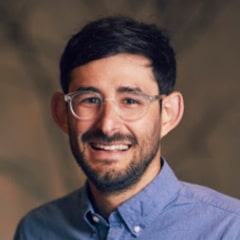
A Longitudinal Window into Collaborative Approaches to Failure during Youth Computer Science Workshops
Innumerable events distributed across students, materials, curricula, teachers, and institutions are jointly responsible for failures that arise in the learning process. In addition to weaving a casual account of failure out of this complex set of factors, students and teachers have to consider how to strategically iterate through obstacles, balance independence with collaboration, calibrate confidence given the tractability of a problem, and prepare for both recurring and novel obstacles. How can our pedagogy around students’ encounters with failure keep pace with this range of causes and possible goals? In this project, I explicitly frame and study moments of failure as points of departure that can move in multiple directions. Focused on computer programming—a discipline in which debugging broken code is essential, extremely common, often challenging, and shaped by numerous tools—this design-research study addresses how debugging teaching and learning take place in moment-to-moment interactions between talk, action, gesture, and materials in case studies that stretch over several years. This work takes place in a learning community designed to nuance, distribute, and valorize the process of storytelling about failure to break down oversimplified accounts. The analysis aims to document how pedagogy foregrounds, backgrounds, and blends multiple valuable facets of failure: fixing bugs, avoiding past bugs, handling new bugs, engaging with authority, and calibrating confidence.
Laura Enriquez, University of California, Irvine
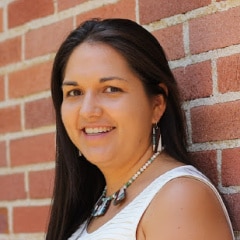
Laura Enriquez is an Assistant Professor of Chicano/Latino Studies at the University of California, Irvine. Her research focuses on the educational, political, and social experiences of undocumented young adults who immigrated to the United States as children. Her book, Of Love and Papers: How Immigration Policy Affects Romance and Family (University of California Press, 2020) explores how immigration policy is fundamentally reshaping Latino families as illegality creeps into the most personal aspects of everyday life, intersecting with gender to constrain family formation. She currently leads two related initiatives – the UC Collaborative for Immigrant and Student Equity (UC PromISE) and the Undocumented Student Equity Project (USEP) – both dedicated to conducting research to identify best practices for advancing educational equity for undocumented students and students from mixed-status families.
Dr. Enriquez received her Ph.D. in Sociology from the University of California, Los Angeles. She is a former Ford Foundation Predoctoral (2008) and Dissertation (2013) Fellow, and UCI Chancellor’s ADVANCE Postdoctoral Fellow (2014).
Immigration Policy and the Making of Unequal Educations
Previous research has established that undocumented immigration status contributes to lower educational outcomes for undocumented young adults and the citizen children of undocumented parents. Yet, few studies have situated these within the broader context of immigration policy which is multilayered, constantly shifting, and fosters shared consequences within families. This project focuses attention on the immigration policy context to demonstrate how unequal outcomes emerge and what educational institutions can do to intervene. I draw on ten years of interview and original survey data spanning six projects with Californian undergraduate students. I examine undocumented college students’ experiences: 1) over time to assess how educational experiences and outcomes have shifted due to the changing federal and state immigration policy context, and 2) contextualize them within their institutional context to assess if, how, and the extent to which educational institutions can moderate the effects of the current immigration policy context on academic performance, educational engagement, and post-graduate preparation. Further, I examine how and the extent to which current immigration policy context disrupts the educational experiences and outcomes of U.S. citizen students with undocumented parents. Findings will guide educational institutions and practitioners in how to advance educational equity among this marginalized student population.
Eve L. Ewing, University of Chicago
Eve L. Ewing is an Assistant Professor in the University of Chicago School of Social Service Administration. She is a qualitative sociologist of education whose work is centered around two primary questions: First, how do racism and other large-scale structures of social inequality impact the everyday lives and experiences of young people? Secondly, how can K-12 public school systems serve to interrupt or perpetuate these social problems, and what role can educators, policymakers, families, community members, and young people themselves play in understanding, acknowledging, and disrupting them? Ewing’s book Ghosts in the Schoolyard: Racism and School Closings on Chicago’s South Side was published by the University of Chicago Press in 2018. She also writes in other genres for broad audiences; she is author of the poetry collections Electric Arches and 1919 and writes for Marvel Comics. Her work has appeared in many venues, including Poetry Magazine, The New Yorker, The Atlantic, The Nation, The Washington Post, and The New Republic. She directs the Beyond Schools Lab and is a Faculty Affiliate at UChicago’s Center for the Study of Race, Politics, and Culture and the Center for the Study of Gender and Sexuality.
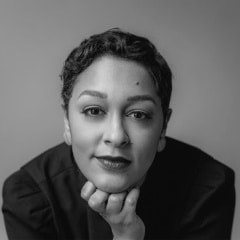
Outer City Children: Individual and Institutional Responses to Black Out-Migration in Chicago
Demographic changes in Chicago and cities like it demand a re-examination of what we mean when we refer to “urban” issues or “inner city youth,” terms that often serve as unspoken racial and socioeconomic shorthand. Since 2000, the number of Black residents in Chicago has dropped 22 percent. Existing scholarship explores the changing nature of race in suburbia, but has not addressed what these shifts mean for those left behind in changing cities. In this study, I offer the theoretical construct of the “outer city,” an ontological and spatial condition of marginality. I then ask: how do Black Chicagoans make meaning of these demographic shifts? How are practitioners within the city’s schools and social service institutions that have historically served Black families responding? What implications do these changes have for the way we conceptualize “urban education”? I will address these questions using the qualitative sociological research method of portraiture, using participant observation, semi-structured and unstructured interviews, and contextual quantitative data to analyze the particular circumstances of four to six focal individuals in order to illustrate broader social phenomena. This study seeks to document a historically significant moment of demographic change and to critically examine a changing relationship between Blackness and urbanity.
Logan Fiorella, University of Georgia
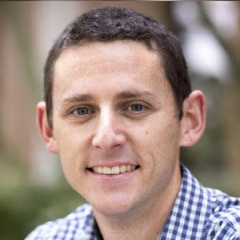
Dr. Logan Fiorella is Assistant Professor of Educational Psychology at the University of Georgia. He received his PhD in Psychology from the University of California, Santa Barbara. His research explores the cognitive science of student learning and its implications for instruction. One area focuses on how students learn from “generative” learning activities like learning by explaining and learning by drawing. A second area focuses on applying principles of cognition to the design effective multimedia learning environments, including games, simulations, and instructional videos. Dr. Fiorella received the 2020 Richard E. Snow Award for Early Contributions in Educational Psychology from Division 15 of the American Psychological Association, and the 2019 Outstanding Early Career Scholar Award from Division C of the American Educational Research Association.
Fostering Active Knowledge Building in Learning by Teaching
Learning by teaching involves constructing a deeper understanding of the learning material through explaining it to others. Although explaining to others is generally effective, many students struggle to engage in knowledge building, in which they actively monitor their understanding and generate inferences. This project will investigate how asking students to explain drawings—either generated by the learner or provided by the instructor—affect specific knowledge building processes. In the project, undergraduates will ‘teach’ biology concepts by recording a video lecture for a fictitious peer. We will examine how the availability of learner-generated and instructor-provided drawings influence verbal explanation quality, subsequent restudy behavior, and long-term understanding. Overall, the goal of this research is identify specific conditions under which learning by teaching is most effective at fostering learning and self-regulation.
Rachel Fish, New York University
Rachel Fish is an assistant professor in the Department of Teaching & Learning at NYU, with affiliations in the Sociology of Education program and the Metropolitan Center for Research on Equity and the Transformation of Schools. She studies the social construction of disability and giftedness, as well as how these relate to inequality. In particular, her research examines the role of special and gifted education in stratification by race, gender, socioeconomic status, and linguistic background. Dr. Fish uses multiple methods, including experimental and quasi-experimental methods, observational data analyses, and interviews, to understand how students are sorted into special and gifted education programs, and how these services ameliorate and exacerbate inequalities. In another line of research, she focuses on how school-based social ties relate to inequality, examining parent-teacher relationships, teacher social networks, parent involvement, and social capital in schools. Dr. Fish received her Ph.D. in Sociology from the University of Wisconsin-Madison, her M.A.T. in Special Education from Western New Mexico University, and her A.B. in Sociology from Bryn Mawr College. Prior to joining NYU, she was a Postdoctoral Fellow at the University of Notre Dame’s Center for Research on Educational Opportunity. She also taught students with disabilities and giftedness in northwestern New Mexico for five years.
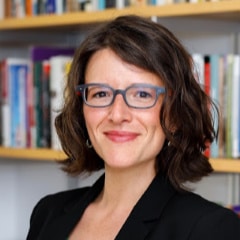
The Emergence of Disability and Giftedness: Race, School Context, and the Perception of Student Needs
Researchers have noted racial disparities in special and gifted education programs for decades, yet a polarized debate focuses on whether schools are inappropriately identifying disabilities and giftedness at differential rates, or whether the disparities reflect broader racial inequalities. A growing body of research examines the role of school context, and calls for examination of the construction of disability and giftedness in schools. In this project, I examine how students’ strengths and challenges become identified as disabilities/giftedness, and how student race, gender, linguistic status, socioeconomic status, and school context shape this process. My multi-methods project synthesizes my quantitative research on racial disparities in special and gifted education in Wisconsin, and brings it together with a deep exploration of processes and meaning-making through interviews with over 100 Wisconsin teachers and parents about children suspected of having (or not having) disabilities or giftedness.
Juan Garibay, University of Virginia
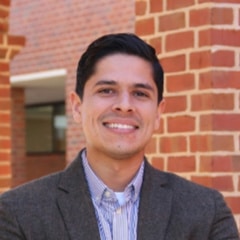
Juan Carlos Garibay is an Assistant Professor of Higher Education at the University of Virginia’s (UVA) School of Education and Human Development and a Faculty Affiliate at the UVA Center for Race and Public Education in the South. His research takes a critical quantitative approach, utilizing critical theoretical frameworks to examine campus climate and structural inequities in postsecondary education for racial/ethnic minoritized groups. Dr. Garibay’s scholarship has examined questions of social justice and racial (in)equity in STEM, the effects of campus racial incidents on white students’ racial attitudes, and the effect of in-state resident tuition policies on college student views toward undocumented immigrants’ access to public education. He is currently investigating how university histories of slavery impact the experiences and outcomes of students of African descent. His publications have been featured in the Journal of Higher Education, Research in Higher Education, the Review of Higher Education, the American Educational Research Journal, and the Journal of Research in Science Teaching. Dr. Garibay is a member of the editorial boards for the Journal of Higher Education and AERA Open. He received his Ph.D. and M.A. in higher education and organizational change, and B.S. in applied mathematics all from the University of California, Los Angeles. Prior to graduate school, Dr. Garibay worked for a community-based environmental justice organization in his hometown of Wilmington, California. He comes from a working class Mexican immigrant family and was a first-generation college student..
Empowerment as Black & Latinx STEM Student Success: The Importance of Majors, Learning Experiences, and Minority-Serving Institutions
Despite the significant investment of national agencies in developing future STEM professionals’ social and civic responsibility, there are no known studies that have longitudinally examined racial/ethnic minoritized STEM students’ social justice outcomes, especially over the long-term. As a result, little is known about the specific long-term developmental experiences of racial/ethnic minoritized STEM students across multiple contexts. To address this gap, this project examines how background characteristics, different STEM majors and learning experiences, and institutions (e.g, Minority-Serving vs. Traditionally White Institutions) predict two outcomes measured seven years after college entry: social agency and values toward conducting research that will have a meaningful impact on underserved communities. Additionally, whether student outcomes are impacted by the interplay of disciplinary and institutional contexts is explored. The study utilizes multilevel modeling on national longitudinal samples of African American/Black and Latinx STEM bachelor’s degree recipients, merging longitudinal student data from the 2004 Cooperative Institutional Research Program’s Freshman Survey and 2011 Post-Baccalaureate Survey with institutional data from IPEDS. Results will offer new insights to our current understanding of STEM success for racial/ethnic minoritized students as well as help inform federal, state, and campus-level policy and practice to better serve historically marginalized groups in STEM.
Shayl Griffith, Florida International University
Shayl Griffith, PhD, is an incoming Assistant Professor in the Department of Counseling, Recreation, and School Psychology at Florida International University (FIU). She received her PhD in Clinical Psychology in 2018 from the University of Massachusetts Amherst and completed her postdoctoral training at the Center for Children and Families at Florida International University (FIU). Dr. Griffith’s research interests center on the behavioral and academic functioning of at-risk young children, with special interests in early identification and intervention in problems of development, parent-child interactions, child media use, and the use of mobile technology to support interventions. Her work has been supported by the UMass Center for Research on Families and a dissertation fellowship from the National Academy of Education/Spencer Foundation.
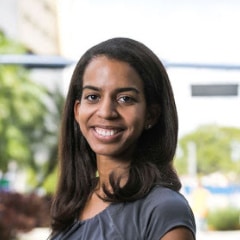
More than a Babysitter? Examining Perceptions and Practices around Educational Digital Media Use in High-Risk Families
The mobile technology revolution rapidly and profoundly changed the home learning environments of young children and introduced countless potential new child-related uses of media and media devices. While research has examined patterns and predictors of television use in families with young children, studies investigating mobile device and interactive media use specifically are needed. To promote positive media habits for families with higher risk of problematic media use, knowledge about how newer media technologies are used in high-risk families and factors that predict these patterns of use is essential. The proposed study will examine, using in-depth interviews and survey data, the use of mobile devices and interactive digital media in a sample of low-income, ethnic and racial minority families with young children. Specifically, the study will examine parent perceptions about potential harms and benefits of mobile media use in young children, and the relation of parent perceptions to child-related media practices. This study will also examine how parenting skills and environmental stressors may moderate the relationship between parents’ beliefs about mobile media and their child-related media practices, with the aim of informing interventions to promote best practices around interactive screen media use at home.
Oded Gurantz, University of Missouri
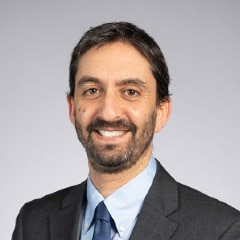
Oded Gurantz is an Assistant Professor in the Truman School of Public Affairs at the University of Missouri. Previously, Oded was an Institute of Education Sciences Fellow in the Stanford Graduate School of Education and worked as an Associate Policy Research Scientist at the College Board. His research focuses on gaps in college enrollment and completion between students from historically underserved groups and their more privileged peers, and has been published in some of the leading economic, policy, and education journals. With a background in economics and education policy, he uses quantitative research methods, primarily quasi-experimental and experimental designs, to examine programs and policies that are both effective and efficient in ameliorating educational disparities. A key component of Oded’s research agenda is the development of long-term, collaborative partnerships with educational and government agencies. This approach helps his findings address not just theoretical questions in the literature, but ensures that the results are relevant to current public policy debates and well-positioned to lead to actionable change.
Does Eliminating Community College Courses Impact Degree Completion? Evidence from California during the Great Recession
Fiscal pressures forced California’s community colleges to eliminate over 20% of all courses between 2008 and 2012, locking students out exactly when postsecondary education was in highest demand. This study examines how dramatic changes in course availability impacted long-term degree completion and major choice. California provides a unique opportunity to study this issue due to variation in course-cutting behaviors across more than 110 colleges, in-depth public data that identifies which courses were cut and how many degrees were earned, and private College Board data tracking hundreds of thousands of students from high school into college that can identify who was most impacted. My primary approach are fixed effects models that use within-college, across-department changes in courses offered to estimate the impacts of course-cutting on major-specific degree completion. I will also describe what predicts variation in overall course-cutting behaviors across community colleges, delving into community college funding formulas and other idiosyncratic decisions to develop essentially “randomized” instruments for further causal estimation. This broad study of higher education’s structure helps develop our knowledge of how colleges shift resources during economic downturns and the resulting consequences, giving us the opportunity to predict and potentially correct problems that will arise during the next recession. .
Jessica C. Harris, University of California, Los Angeles
Jessica C. Harris is an assistant professor of Higher Education in the Graduate School of Education at University of California, Los Angeles. Dr. Harris’ research agenda focuses on racial in/equity in post-secondary contexts and is animated by three research strands: (1) Multiraciality in Postsecondary Contexts, (2) Women of Color and Campus Sexual Assault, and (3) The Mis/Use of Theory to Advance Racial Equity in Higher Education. The purpose of her research is to analyze and disrupt racism and its intersecting systems of domination, such as sexism and classism, that are embedded throughout U.S. education and that influence People of Colors’ educational experiences. Her work has recently appeared in the Journal of Higher Education, the Review of Higher Education, and Higher Education: Handbook of Theory and Research. Dr. Harris received her B.A. in Critical Theory and Social Justice from Occidental College, her M.Ed. in College Student Affairs from Pennsylvania State University, and her Ph.D. in Higher Education from Indiana University.
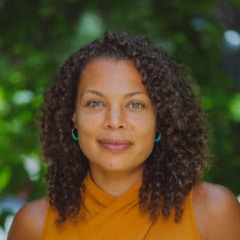
“My Story is Different”: Centering Women of Color Student Survivors of Campus Sexual Assault
Despite federal and institutional efforts to prevent and respond to campus sexual assault, this form of violence remains endemic to U.S. college and university campuses. I, along with other scholars, have posited that the persistent failure to eradicate campus sexual assault is influenced by the race-evasive framework, or a frame that denies and evades the significance of race, many researchers and policy-makers apply to the issue of sexual assault on campus. Through this study, I demonstrate how focusing on the intersections of students’ identities, specifically race and gender, in sexual assault research can inform more holistic and effective institutional prevention and response efforts and is a critical step toward eradicating campus sexual assault. Using qualitative inquiry, I will focus on over 60 Women of Color students who have experienced campus sexual assault while attending one of six higher education institutions located in one state in the U.S. I center survivors’ stories of how their institution aimed to prevent and respond to campus sexual assault. I will also collect and analyze institutional documents and interview key faculty and staff who influence the discourse and decisions around sexual assault at each institution. Using the Multicontextual Model for Diverse Learning Environments and intersectionality, I position participants’ individual experiences within institutional and sociohistorical contexts and identify oppressive systems that structure the experiences of Women of Color survivors of campus sexual assault.
Julia C. Lerch, University of California, Irvine
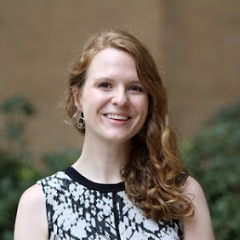
Julia C. Lerch is an Assistant Professor of Sociology at the University of California, Irvine. She studies changing ideas about the role of schools and universities in society, as articulated in national and global discourses and institutions, and how these changes manifest in education systems around the world. Her dissertation examined the growing institutionalization of education as a core pillar of international responses to humanitarian emergencies. She explored how this shift not only broadened the boundaries of humanitarian aid – historically focused on survival – but also expanded the objects of education from long-term development to emergency relief. In a second line of research, she has studied shifting portrayals of society in educational curricula worldwide, using data coded from school textbooks on topics such as nationalism, diversity, and human rights, as well as internationalized study programs at universities. Julia received her Ph.D. in Education from Stanford’s Graduate School of Education and holds an M.Sc. in International Development from the University of Amsterdam and a B.A. in Philosophy, Politics and Economics from the University of Oxford..
The University and the State in the 21st Century: A Cross-National Study of Political Repression in the University Sector and its Impact on Higher Education Access and Inclusion
In the decades following World War II, and especially in the post-Cold War period, the university became a central institution in societies worldwide. Its cultural authority – over truth, progress, and identity – expanded, not least vis-à-vis the nation-state, and numbers of higher education institutions and enrollments soared.
The contemporary period, however, is marked by instances of retrenchment. Governments in a number of countries are imposing political restrictions on universities, and some are curbing higher education access. My project examines this emerging wave of political repression in the university sector and situates it within an ongoing pushback against the post-World War II liberal, and later neoliberal, world order. I argue that the post-war university expansion was greatly enabled by international institutions, which promoted higher education as central to a liberal model of society, along with human rights, free markets, and democracy. Today, as opposition to the liberal model mounts in the form of nationalism, right-wing movements, and populist or authoritarian leaders, the university becomes vulnerable to cutbacks and attacks.
The project draws on newly available cross-national data on academic freedom since 1970 to assess patterns and predictors of university repression over time and its impact on tertiary enrollments. A qualitative dimension examines human rights reports to understand national variations in how repression is framed by state authorities. The project expands our understanding of the university as a target for repression and sheds light on the continuously evolving relationship between the university and the state. A key insight that emerges is that this relationship is not solely rooted in domestic contexts, but linked to world-level transformations.
Luis A. Leyva, Vanderbilt University
Luis A. Leyva is an Assistant Professor of Mathematics Education at Vanderbilt University-Peabody College of Education & Human Development. His research explores how historically marginalized students across intersections of race, gender, and sexuality construct their identities while navigating instructional and student support contexts in undergraduate STEM education. Leyva’s scholarship has been distinguished as a 2016 Dissertation Fellow by the National Academy of Education/Spencer Foundation and recipient of the 2018 Early Career Publication Award from the Research in Mathematics Education special interest group of the American Educational Research Association. Leyva has been awarded two multi-year grants from the National Science Foundation’s Division of Undergraduate Education as well as two research fellowships from the Mindset Scholars Network (New Venture Fund/Bill & Melinda Gates Foundation) and Women of Color in Computing Collaborative (Kapor Center/Center for Gender Equity in Science & Technology). His research has been published in the Harvard Educational Review, Journal for Research in Mathematics Education, and Journal of Urban Mathematics Education. Leyva is the director of the Power, Resistance & Identity in STEM (PRISM) research lab at Vanderbilt University-Peabody College. He holds a Ph.D. in mathematics education with a graduate certification in women’s and gender studies. Leyva was certified as a K-12 mathematics teacher in New Jersey and has over six years of professional experience in STEM college student support initiatives, including living-learning communities and summer bridge programs.

Queer of Color Counter-stories from Engineering, Computing, and Mathematical Science Majors
In education broadly, research has documented unique experiences of oppression and resistance among queer Black and Latinx students, or queer students of color (QSOCs), negotiating their racial identities with heterosexist views on gender and sexuality among communities of color. However, the field lacks knowledge about QSOCs’ experiences in specific content areas, especially engineering, computing, and mathematical (ECM) sciences plagued with racialized, heterosexist ideologies of ability. This study addresses this void through an intersectional analysis of 32 queer Black and Latinx students’ narratives of oppression and resistance (or counter-stories) in pursuing ECM science majors at two predominantly white and two historically Black universities. This counter-storytelling analysis examines how classroom instruction and co-curricular support opportunities affirm and disaffirm queer of color identities, as well as QSOCs’ coping strategies for protecting their identities and persistence in ECM sciences. The counter-stories are syntheses of various data sources for capturing reflective and situated dimensions of experience, including written autobiographies, classroom observations, individual interviews, participant journaling of everyday events, and group interviews with stimulus-recall of journaled events. Findings will contribute to developing a framework of QSOC-affirming STEM pedagogical practices, including instruction and student support, to inform ECM science departments’ professional development across different university contexts.
Daniel Morales-Doyle, University of Illinois-Chicago

Daniel Morales-Doyle is an assistant professor of science education in the department of curriculum and instruction at the University of Illinois at Chicago. His research examines the potential for science education to act as a catalyst for social transformation by engaging youth in learning to do science and to critique science with and for just, sustainable communities. This work includes studying high school science curriculum, teaching, and teacher education as situated within broader contexts of inequity. Daniel was a high school teacher in the Chicago Public Schools for more than a decade before joining the faculty at UIC.
Disciplining Equity: Studying Science Teachers’ Work at Content Area Boundaries
There is broad consensus that students’ science learning should be relevant in the cultural and community contexts in which they live. Educators also increasingly believe that evidence of learning science extends beyond students reconstructing canonical explanations of natural phenomena. At the same time, mainstream equity discourses remain singularly focused on broadening access to the disciplines that comprise the so-called STEM pipeline. These discourses often do not address the sociopolitical forces and historical contexts that create inequity, nor do they interrogate the end goals of the STEM pipeline itself. A contextualized view of equity in science education reveals potential tensions and synergies between access to the disciplinary canons and struggles for social or environmental justice. This project examines the complex relationships between equity and science content area boundaries. Specifically, the goal is to better understand how science teachers negotiate the limits of their content areas. The project will inform, and be informed by, practitioners’ ability to shift the aims of science teaching away from the promotion or reproduction of the disciplines and towards appreciation, appropriation, and critique of disciplinary knowledges or practices in service of social and environmental justice.
Jen Munson, Northwestern University
Jen Munson is an Assistant Professor of Learning Sciences at Northwestern University’s School of Education and Social Policy. Her work focuses on how interactions between mathematics teachers, students, and teacher educators can support learning. Her recent research has focused on the ways the teacher discourse following shared experiences of pedagogy can support the development of adaptive expertise, and how teacher-student interactions in the midst of collaborative problem solving can co-construct the advancement of student thinking. Recent publications have appeared in Journal of Mathematical Behavior, Journal of Educational Psychology, Phi Delta Kappan, and Mathematics Teacher Educator. She is the author of In the Moment: Conferring in the Elementary Math Classroom (Heinemann, 2018) and the co-author of the Mindset Mathematics curriculum series (Wiley, 2017 – 2020). A former elementary and middle school classroom teacher and mathematics coach, she received her Ph.D. in Mathematics Education and Teacher Education from the Stanford Graduate School of Education in 2018. .
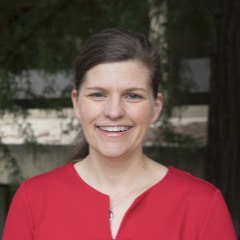
Teacher and Coach, Side by Side: Specifying the Coaching Structures and Moves that Support the Learning of Elementary Mathematics Teachers during Instruction
Changing the mathematical learning opportunities for students is critical for promoting equitable outcomes and deep understanding of mathematics. However, the demands on teachers to reimagine mathematics teaching and learning in ambitious ways have not been matched with sufficiently robust and effective professional development. Coaching is a promising, but underspecified, platform for supporting teacher learning. This study will investigate a novel coaching activity, side-by-side coaching, in which a coach and teacher co-participate in mathematics teaching, discussing and addressing problems of practice as they emerge in the moment. Theoretically, this approach draws on communities of practice, framing teacher learning as a shift in participation with the coach present to support such changes directly. In an earlier study, side-by-side coaching was shown to support teacher learning of ambitious mathematics instructional practice. The proposed study will (1) identify the activities the coach and teacher engaged in during side-by-side coaching, (2) identify discursive moves used repeatedly by the coach during these activities, and (3) connect activities and discursive moves to teacher learning, leading to a model of effective side-by-side coaching. This work contributes to effective coaching models to support teacher learning of ambitious practices, making both side-by-side coaching and its components replicable in new contexts. The ways in which the coach-teacher dyad collaborate to support teacher learning may offer other partners, such as teacher peers or student teacher-mentor teacher pairs, promising new ways to closely study the emergent problems of practice when they emerge, during instruction.
Raquel Otheguy, Bronx Community College of the City University of New York
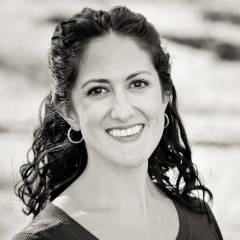
Raquel Alicia Otheguy is Assistant Professor of History at Bronx Community College of the City University of New York, specializing in the history of Latin America, the Caribbean, and the African Diaspora. Otheguy received her Ph.D. in History from Stony Brook University, SUNY in 2016. Her doctoral dissertation received the 2017 Honorable Mention from the New England Council on Latin American Studies. Her research is based on material gathered in archives in the Cuban cities of Cienfuegos, Santiago, and Havana, as well as in archives in Tuskegee, New York City, and Washington, D.C. During the 2013-2014 academic year, Otheguy was a Spencer Foundation Dissertation Fellow at the National Academy of Education. She has presented her research at conferences in the U.S. and abroad, including meetings of the Association of Caribbean Historians, the American Educational Research Association, and the American Historical Association. Otheguy, a U.S.-born bilingual Latina, received her B.A. in History from Columbia University.
Libertad e Instrucción: Race and Education in Nineteenth-Century Cuba
My book Libertad e Instrucción: Race and Education in Nineteenth-Century Cuba will trace the development of the national education system in the racial and colonial context of nineteenth-century Cuba. I look at debates among Spanish colonial authorities and local creole officials about whether people of color should have access to education as students and teachers, and at these elites’ drive to codify and enforce racial segregation in one of the island’s most important public institutions—the emerging education system. This book will also trace the intellectual history of black Cuban thought regarding education, and will explore the educational activities and initiatives of people of color themselves, thus positioning Afro-descendants at the center of the story of the rise of mass education in Cuba. In the ways that black people interacted with the colonial school system and its authorities, and in the separate schools they created during the nineteenth century, we see that black Cubans were resisting the hardening racial boundaries that characterized nineteenth-century Cuban life, and furthermore, that they were developing alternative visions of possible societies, nations, and futures for themselves and for the island society.
Daniel Rees Lewis, Northwestern University
Daniel Rees Lewis is a postdoctoral fellow in the Segal Design Institute at Northwestern University. He received his Ph.D. in the Learning Sciences in 2018 from Northwestern University’s School of Education and Social Policy. In his research, he creates and studies pedagogies, technologies, and organizations to promote more effective teaching and learning of real-world design. For example, his projects have focused on how to support university students designing for the homeless population, or, as in this project, how teachers can design more effective and equitable curricula. In his work, he draws from and contributes to the Learning Sciences, Computer-supported Collaborative Learning (CSCL), Design Theory, and Human-Computer Interaction (HCI). His current projects include examining how to help design teams learn to work with stakeholders to discover and meet their needs; creating technology to provide more effective stakeholder and peer feedback; examining the nature of coaching in design and how to create technology for coaching; and defining design-based research methods to help researchers be more responsive to stakeholder needs.

Providing High Quality Online Feedback to Support K-12 Teachers Instructional Improvement Through Principled Adaption
The goal of this study is to build approaches and theories for providing teachers online feedback as they redesign their curriculum to be more effective and equitable. I will conduct a design-based research-practice partnership (Penuel & Gallagher, 2017) with an equity-focused K-12 professional learning network with teachers across California. Within the network, teachers redesign their existing curriculum to be more effective and equitable by following a principled adaptation process (e.g. Debarger et al., 2017). Principled adaptation can support more effective and equitable teaching (e.g. Gallagher et al., 2011) when teachers receive significant expert feedback in highly resourced face-to-face settings. To support more teachers in the principled adaptation process, we might provide online feedback through professional learning networks—distributed networks for improving teaching, supported by technology. However, we do not have robust theories about how to elicit high-quality feedback online for teachers conducting principled adaptation. I propose to address this gap by creating an empirically grounded local instructional theory that defines the pedagogical and technological approaches to do so within a professional learning network. Providing regular high-quality feedback to teachers as they work to improve their curriculum and practice can help address critical issues of equity and effectiveness in education.
Ethan Ris, University of Nevada
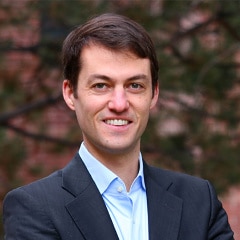
Ethan Ris is an assistant professor in the College of Education at the University of Nevada, Reno, and a 2020 National Endowment for the Humanities Fellow. He is a historian of education, with a research focus on policy and reform in American higher education in the 20th century. His scholarship has been published in top journals including the Journal of Higher Education and Teachers College Record. As a co-director of Nevada’s Higher Education Administration program, Ris teaches classes on diversity in higher education, student development theory, and reform and innovation in higher education. He holds a bachelor’s degree from Brown University and a Ph.D. from Stanford University, where he was also a Fellow in the Stanford Center on Philanthropy and Civil Society. Before graduate school, he was a college guidance counselor at the MET School in Providence, Rhode Island.
When College Was the Solution: The Golden Age of American Higher Education
Throughout most of the past 120 years, the American college has been perceived as a problem: inefficient, inaccessible, elitist, expensive, retrograde, useless. For roughly three decades during and after World War II, however, college unexpectedly became a key solution to a wide variety of social and political challenges: economic woes, warfare, inequality, and even the preservation and spread of democracy itself.
This period, which I delineate as 1944-1972, has been commonly regarded as a situational quirk of history, when the Cold War and the Baby Boom fortuitously collided to create a “golden age” of taxpayer largesse and growing enrollments. In this book project, which is rooted in archival research in many collections, I acknowledge the importance of demographics and geopolitics, but also demonstrate that higher education was far from an obvious solution to the problems they posed. Instead, actors at many levels – government, philanthropic foundations, institutional and professional associations, and colleges and universities themselves – actively worked to present college as that solution. Their efforts succeeded, paving the way for programs that greatly expanded higher education’s footprint and importance: increased college access, the establishment of new institutions, and the international export of the American college model.
Diego Román, University of Wisconsin-Madison
Dr. Diego Román is an Assistant Professor in Bilingual/Bicultural Education at the Department of Curriculum and Instruction at the University of Wisconsin-Madison. Prior to this appointment, he was an Assistant Professor in Bilingual Education at Southern Methodist University in Dallas, Texas. Dr. Román holds a B.S. degree in Agronomy from Zamorano University in Honduras and a M.S. degree in Curriculum and Instruction from the University of Wisconsin-Whitewater. He also earned a M.S. degree in Biology, a M.A. in Linguistics, and a Ph.D. degree in Educational Linguistics, all from Stanford University. At the K-12 level, Dr. Román taught middle school science to Emergent Bilinguals for seven years, first in rural Wisconsin and then in San Francisco, California. Dr. Román’s research interests are located at the intersection of applied linguistics, bilingual education, and science education. Specifically, he investigates the implicit and explicit ideologies reflected in the design and implementation of bilingual and science education programs particularly on how environmental topics are taught to multilingual students. He conducts his research from a Systemic Functional Linguistics perspective by analyzing the linguistic and multimodal characteristics of the discourse that take place in bilingual and science classrooms. Dr. Román has researched the language used to teach climate change at the middle school level and is currently examining science, environmental, and bilingual programs (Spanish/English and Kichwa/Spanish) in rural Wisconsin and in the Galapagos Islands, Ecuador.
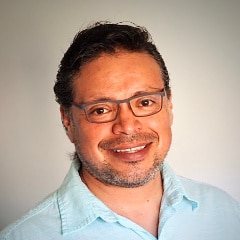
The Role of Language in Teaching Local Environmental Issues to Emergent Bilingual Latinx Students in Wisconsin
Human actions are causing the decline of biodiversity, contributing to water pollution, and reducing the capacity of natural systems to sustain themselves. Yet, little is known about how to meaningfully teach environmental concepts to linguistically minoritized children who tend to live in low-income areas that disproportionately suffer the effects of environmental degradation. Drawing on Systemic Functional Linguistics, raciolinguistics, and culturally and linguistically relevant science education, this study examines the language used in district-adopted materials and by middle school science and ESL teachers in the teaching of local environmental issues to low-income Emergent Bilingual (EBs) Latinx students in west-central Wisconsin—a region that has experienced some of the largest growths of Latinx EBs in the state. This mixed-methods study will include functional linguistic discourse analyses of district-adopted materials, an online survey, in-depth teacher interviews, and classroom observations. Specific topics that will be examined are (a) linguistic and science/environmental complexity of sample texts extracted from state-adopted science textbooks, (b) teachers’ practices in adapting materials to teach local environmental issues to the Latinx EBs; (c) teachers’ perceptions of the language and cultural practices of the Latinx students. This work has implications for the education of linguistically minoritized students, science education, and environmental studies.
Matthew Shirrell, George Washington University
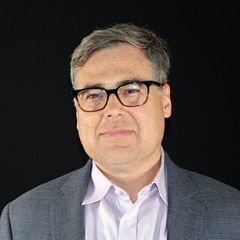
Matthew Shirrell is an Assistant Professor of Educational Leadership and Administration at George Washington University. His research explores the relationships between policy, the social and organizational characteristics of schools and school systems, and teacher learning, improvement, and retention. Much of his current work uses interviews and social network analysis to examine the relationships between school and school system educational infrastructures, teachers’ work-related social interactions, and teacher learning and improvement. Dr. Shirrell’s work also examines the impacts of federal, state, and local policies on school working conditions and the retention of teachers and school leaders, as well as the roles that partnerships with outside research organizations play in school district learning and improvement. His research has been funded by the William T. Grant Foundation, the Walton Family Foundation, the Chan/Zuckerberg Initiative, the American Educational Research Association, and the Albert Shanker Institute. Prior to joining the faculty of George Washington University, Dr. Shirrell was a post-doctoral fellow with the Distributed Leadership Study at the School of Education and Social Policy at Northwestern University.
From Accomplishment to Influence: Professional Knowledge, Educational Infrastructure, and National Board-Certified Teacher Leadership
The last thirty years have seen significant efforts to build systemic coherence in U.S. public education and “couple” classroom instruction to the administrative structures of districts and states. In some settings, these efforts have altered organizational routines and structures, yet we know little about how these changes have impacted teachers’ conceptions of professional knowledge or their interactions with their colleagues, despite the importance of these understandings and interactions to educational improvement. My study explores whether and how efforts to build systemic coherence shape teachers’ understandings of professional knowledge and expertise, as well as teachers’ interactions with their colleagues about teaching and learning. As cases of systems aiming to build coherence, I examine three school districts that built educational infrastructures centered on the National Board for Professional Teaching Standard’s Body of Knowledge for Accomplished Teaching. Using analysis of interviews and social networks, I explore the ways that this body of knowledge, along with specific infrastructure elements, shaped teachers’ conceptions of professional knowledge and expertise, as well as teachers’ work-related social interactions. Findings of this study will inform the design of coherent education systems that build professional knowledge and collegial interactions in ways that are most likely to lead to educational improvement.
John D. Singleton, University of Rochester
John D. Singleton is an Assistant Professor of Economics at the University of Rochester. He earned his B.A. in 2008 from Calvin University and his Ph.D. in economics in 2017 from Duke University, where his dissertation was supported by a National Academy of Education/Spencer Foundation fellowship. His work focuses on the implications of school choice policies, such as charter schools and private school vouchers, for educational equity and has appeared in American Economic Review, Journal of Public Economics, Education Finance and Policy, and Economics of Education Review, among other outlets
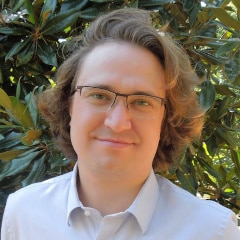
Voucher Program Effects: The Role of Private School Participation
A number of U.S. states have recently created or expanded eligibility for programs offering vouchers to K-12 students to attend private schools. These programs aim to increase access to high quality schools, particularly for students who are disadvantaged or underserved by public schools. However, recent findings from multiple states indicate significant and sharp negative effects of vouchers on the academic achievement of recipients. While alarming, an important reason these findings remain of limited value for policy is that they neglect private schools’ decisions to participate in the first place. Because private schools select to participate (or not) – and because those that are most effective at increasing student learning maybe least likely to seek public subsidy – private schools that participate in voucher programs may be worse than private schools on average. This has important policy implications for the design and expansion of voucher programs. The project will draw upon student-level records from Ohio’s Educational Choice Scholarship Program, a statewide voucher program implemented in the 2006-7 school year. These data will also be linked with longer-run outcomes, such as high school completion and college attendance, to assess the effectiveness of vouchers in terms of human capital accumulation (not just test scores). The project’s research design will leverage quasi-experiment variation in order to quantify the direction and magnitude of participation bias in estimates of voucher programs’ effects and to study counterfactual policy changes.
Ilana Umansky, University of Oregon
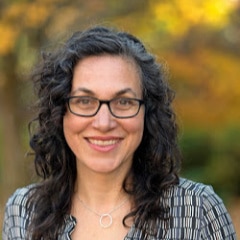
Ilana Umansky is an Assistant Professor of Educational Methodology, Policy and Leadership at the University of Oregon. Her work explores how education policy impacts the educational opportunities and outcomes of immigrant, multilingual and English learner-classified students using largescale data, and longitudinal and quasi-experimental methods. She holds a PhD from Stanford University in Sociology of Education and is particularly interested in topics such as labeling and tracking as she focuses on how to create equitable school systems for immigrant and multilingual students. Her work appears in journals including the American Educational Research Journal, Educational Evaluation and Policy Analysis, the Journal of Research on Educational Effectiveness, Educational Leadership, and Exceptional Children. Her work has received funding and awards from institutions including the Institute of Education Sciences, AERA’s Bilingual Education Research Special Interest Group, the Jacobs Foundation, the Council of Chief State School Officers, the Fulbright Foundation, the National Academy of Education, and the Spencer Foundation..
A Statewide Examination of English Learner’s Access to English Language Arts: Effects of, and Solutions to, Conscribed Access
A growing body of work identifies barriers to educational opportunity among EL-classified students (ELs). Key among them is curricular access, particularly English language arts. However, we know little about how this access varies for ELs in different settings, nor the effects of, or solutions to, EL tracking. In Oregon, EL students are between two and eight times less likely than non-ELs to be enrolled in English language arts coursework each year of high school. Yet these courses offer fundamental academic content and are required for graduation. Hence exclusion from English language arts may contribute to large achievement and graduation rate gaps between ELs and non-ELs. In this project I seek to answer three closely-related questions regarding (1) the extent to which ELs’ take fewer English language arts classes and how English language arts access varies for different students and in different contexts, (2) the impact of ELs’ English language arts access on academic achievement and graduation, and (3) how malleable policy levers are associated with differential access to English language arts. This study draws on longitudinal data from the state of Oregon and uses rigorous quantitative methods including coarsened exact matching and hierarchical linear modeling. The study promises to contribute to theory and understanding of tracking and opportunity to learn, specifically as they relate to multilingual and EL-classified students, just as it also will build understanding of how to address equity barriers and expand these students’ learning opportunities at the secondary level. Importantly, the project builds on existing partnerships with agencies eager to enact beneficial policies for their EL-classified students.
Jon M. Wargo, Boston College
Jon M. Wargo is an assistant professor in the Lynch School of Education and Human Development at Boston College. An educational scholar who attends closely to qualitative research methods, Wargo engages in ethnographic, design-based, and arts-informed methodologies to examine how technology mediates contemporary conceptions of minoritized children and youths’ civic and social education. Publishing extensively across the areas of critical literacy, childhood and youth studies, and qualitative research, his scholarship can be found in the pages of the Journal of Literacy Research, Qualitative Inquiry, Educational Studies, the International Journal of Qualitative Studies in Education, Voices from the Middle, New Media & Society, Learning, Media, and Technology, Social Studies and the Young Learner, and Language Arts. Wargo’s scholarly profile and body of research has been both nationally and internationally recognized. In 2018, he was named a Concha Delgado Gaitan Presidential Fellow by the Council on Anthropology and Education (CAE), a section of the American Anthropological Association. More recently, he was honored with the 2019 ELATE National Technology Leadership Initiative (NTLI) Award as well as the 2020 Divergent Award for Excellence in 21st Century Literacies Research. A former Denver Public Schools teacher, Wargo holds a B.A. in English and Gender Studies from Indiana University – Bloomington and a Ph.D. in Curriculum, Instruction, and Teacher Education from Michigan State University.
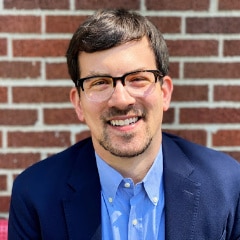
(In)Human Histories: Exploring How Inclusive Educational Policy Shapes the Teaching of LGBTQ History in Elementary Social Studies
Conceptualized as an anthropological study of educational policy, this project explores how elementary teachers in the first year of policy enactment understand, interpret, and teach lesbian, gay, bisexual, transgender, and queer (LGBTQ) inclusive social studies. Designed as a vertical case study, it seeks to examine the material and ideological affordances and constraints teachers identify as obstacles and supports for teaching LGBTQ-inclusive social studies as well as detail, across scale (e.g., school-level, district, state) how the LGBTQ subject is discursively produced as (in)human. Building on scholarship that considers how educational policy is interpreted, implemented, and mediated, this study will reveal the promises and precarity embedded in the work teachers do in understanding, interpreting, and teaching LGBTQ-inclusive social studies while simultaneously nuancing how this is always and already subject to complex relations of culture and power.
Vaughn W. M. Watson, Michigan State University
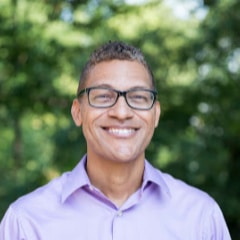
Vaughn W. M. Watson is an Assistant Professor of English Education in the Department of Teacher Education at Michigan State University. Vaughn’s research focuses on the interplay of literacy practices of youth of color and emerging forms of youth’s civic engagement, within and across social, cultural, and geographic contexts of classrooms and community-engaged organizations. In participatory and critical ethnographic research, Vaughn analyzes how youth, teaching artists, and teachers across such creative and artistic literacy practices as songwriting and music production build with and extend youth’s already-present knowledges and lived experiences as civic imaginaries. This work involves designing research approaches and constructing theoretical frameworks that broaden onto-epistemologies as the ongoing work of literacy research and English teaching and teacher education. Vaughn has published research findings in journals including the American Educational Research Journal; Teachers College Record; Review of Research in Education; Research in the Teaching of English; and Urban Education. He is a National Council of Teachers of English, Cultivating New Voices Among Scholars of Color fellow (2012-2014), and received his Ed.D. in Curriculum and Teaching from Teachers College, Columbia University. From 2003 to 2015, Vaughn taught English at a public performing-and-visual arts secondary school in New York City.
Toward Rightful Literary Presence of African Immigrant Youth
African immigrant youth and young adults, among the fastest-growing immigrant communities in the US since 1990 given immigration and resettlement programs, have long enacted creative, artistic, and embodied literacy practices extending racial, ethnic, gendered, cultural, linguistic, and geographic identities. Moreover, African immigrant youth in Diaspora literacy practices render visible urgent questions of how youth of color make present across contexts of schools, families, and communities their knowledge, identities, and lived experiences as emerging forms of participatory communal civic engagement. My qualitative, design-based study thus addresses pressing questions for education research and literacy teaching and learning: how do African immigrant youth engage civically across schooling and community contexts through their literacy practices; and how do education researchers, teachers, and community-based educators design teaching and learning contexts that support African immigrant youth in demonstrating their complex identities in their creative, artistic, and embodied literacy practices? I analyze these questions with youth, teachers, and community-based teaching artists across two after-school literacy-and-songwriting initiatives and four public-school classrooms in two large cities in the U.S. Midwest, through a framework that draws on “rightful presence” (Squire & Darling, 2013) and “literary presence” (Tatum & Muhammad, 2012) to conceptualize the interplay of African immigrant youth’s participatory communal civic engagement, literary presence, and rightful presence as their rightful literary presence.
David Weintrop, University of Maryland
David Weintrop is an Assistant Professor in the Department of Teaching & Learning, Policy & Leadership in the College of Education with a joint appointment in the College of Information Studies at the University of Maryland. His research focuses on the design, implementation, and evaluation of accessible, engaging, and equitable computational learning experiences. He is also interested in the use of technological tools in supporting exploration and expression across diverse contexts including STEM classrooms and informal spaces. His work lies at the intersection of design, computational thinking education, and the learning sciences. David has a Ph.D. in the Learning Sciences from Northwestern University and a B.S. in Computer Science from the University of Michigan. He spent one year as a postdoctoral researcher at the University of Chicago studying computer science learning in elementary classrooms prior to joining the faculty at the University of Maryland. Before starting his academic career, he spent five years working as a software developer at a pair of start-ups in Chicago.

Designing Equitable Computational Thinking Learning Opportunities in Under-Resourced Elementary Mathematics Classrooms
Computation is changing our world. In order to prepare learners to succeed in an increasingly digital landscape, it is important that all students have meaningful computational learning experiences early in their K-12 educational careers. The approach I take with this work is to integrate computational thinking into elementary mathematics classrooms in a way that empowers learners to draw on their Funds of Knowledge while also working within the constraints of the public education system. This project was co-developed through a researcher-practitioner partnership with an urban school district and is designed to align with the district’s mission of joyful and equitable learning while using resources already present within the district. The primary contribution of this study will be in documenting how an integrated approach can be used to provide meaningful and equitable computational thinking learning opportunities for young students. Further, this work will advance our understanding of the nature of computational thinking for elementary learners and provide examples for how to design equitable computational thinking learning experiences that fit within the constraints of public classrooms. In doing so, this project advances the goal of bringing computational thinking to all learners in an effective, equitable, and actionable way.
Jing Xu, University of Washington
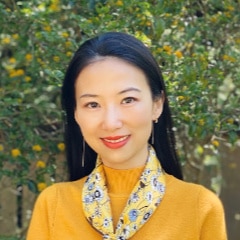
Jing Xu is an anthropologist affiliated with the University of Washington. Her work seeks to answer this central question: How do we become moral persons in socio-cultural contexts? Interested in culture-mind interaction, she adopts an interdisciplinary approach that puts anthropological and psychological theories in conversation, combines ethnography and quantitative methods, and draws from the broad field of Chinese studies. Her book The Good Child: Moral Development in a Chinese Preschool (Stanford University Press, 2017), based on fieldwork in Shanghai, integrates ethnography and experiments to examine preschool children’s moral development under China’s one-child policy and a widely perceived societal “moral crisis.” Recently, her book is translated into Chinese (East China Normal University Press, 2020). She completed post-doctoral training in experimental psychology at the University of Washington, focusing on prosocial development in infancy. Her research has been published in venues spanning multiple disciplines, such as American Anthropologist, Developmental Psychology, Ethos, PLoS One, Cross-Currents: East Asia History and Culture Review, and Sociological Review of China. Originally from China, she holds a B.A. in journalism and M.A. in sociology from Tsinghua University (Beijing), and a Ph.D. in anthropology from Washington University in St. Louis.
Moral Development of Girls and Boys in a Taiwan Village (1958-1960): Analyzing Arthur P. Wolf’s Improved Replication of the Six Cultures Study with a New Framework
This project aims to examine how moral development from early to middle childhood intersects with gender in children’s everyday life, in a community with a long tradition of Confucian moral-cultivation and an entrenched son-preference. In this project I use new theories and methods to analyze a rare and unpublished fieldnotes archive collected by the late anthropologists Arthur P. Wolf and Margery Wolf in mid-twentieth century Taiwan. Designed as an improved replication of the Six Cultures Study, a landmark project in anthropology, the Wolfs’ research was the first systematic field research on Han Chinese children. To integrate and analyze thousands-of-pages of field-notes, including naturalistic observations, interviews, questionnaires, and psychological tests, the project uses a novel analytical approach that combines ethnography with data science techniques for textual, demographic, and social network data. Distinct from the behaviorist paradigm in the Six Cultures Study, it adopts a cognitive anthropology framework that examines culture-mind interface and highlights children’s agency. It will shed new light on a crucial moment in intellectual history, when cross-cultural studies of education intersected with Chinese studies. It will also bring the gender perspective, essential to social justice, into new theoretical conversations on the learning of morality in early life-stage.
Chunyan Yang, University of California, Berkeley
Dr. Chunyan Yang is an Assistant Professor in the Graduate School of Education at University of California, Berkeley. Her research interests focus on understanding how school members (i.e., students, teachers, and parents) interact with their social contexts to find their resilience in the face of a variety of risk factors, including bullying, teacher-targeted violence, and mental health challenges. Dr. Yang received her Ph.D. in Education with a specialization in School Psychology from the University of Delaware in 2015. Prior to joining the faculty at UC Berkeley, she worked as a school psychologist in a large school district in northern Colorado and an assistant professor of school psychology at UC Santa Barbara. Dr. Yang was the recipients of the 2016 Outstanding Dissertation Award from American Psychological Association Division 16: School Psychology, the 2019 Early Career Research Award from the Society of the Study of School Psychology, and 2019 Early Career Award from the Alberti Center for Bullying Abuse Prevention for Distinguished Scholarly Contributions to Bullying Abuse Prevention.

Resilience to Teacher-targeted School Violence: The Roles of School Climate and Social Emotional Competence among Novice Teachers
Research has indicated that teacher-directed violence (teachers’ experience with being targeted by the violent and aggressive behaviors from students) is associated with a wide range of negative teacher and student outcomes, which could potentially contribute to teacher turnover and teacher shortage. However, research to date has not rigorously examined teacher-directed violence’s casual linkage with teachers’ turnover and other teacher wellbeing indicators, particularly among novice teachers. There is also a scarcity of research identifying the resilience factors that could mitigate the negative impacts of teacher-directed violence on novice teachers’ wellbeing. Guided by the attribution and resilience frameworks, this proposed project will use a multi-methods approach to study a group of geographically diverse teachers graduated from teacher education programs in California during their first two years of teaching. The project aims to (a) refine and validate multidimensional measures assessing teacher-directed violence and teacher social emotional competence; (b) examine the longitudinal linkage between teacher-directed violence and teacher wellbeing; and (c) understand the roles of novice teachers’ social emotional competence and school climate perception in shaping their resilience trajectory in the face of teacher-directed violence. Findings will provide researchers, educators, and policy makers with implications for evidenced-based decision making and intervention addressing teacher-directed violence and teacher shortage.
